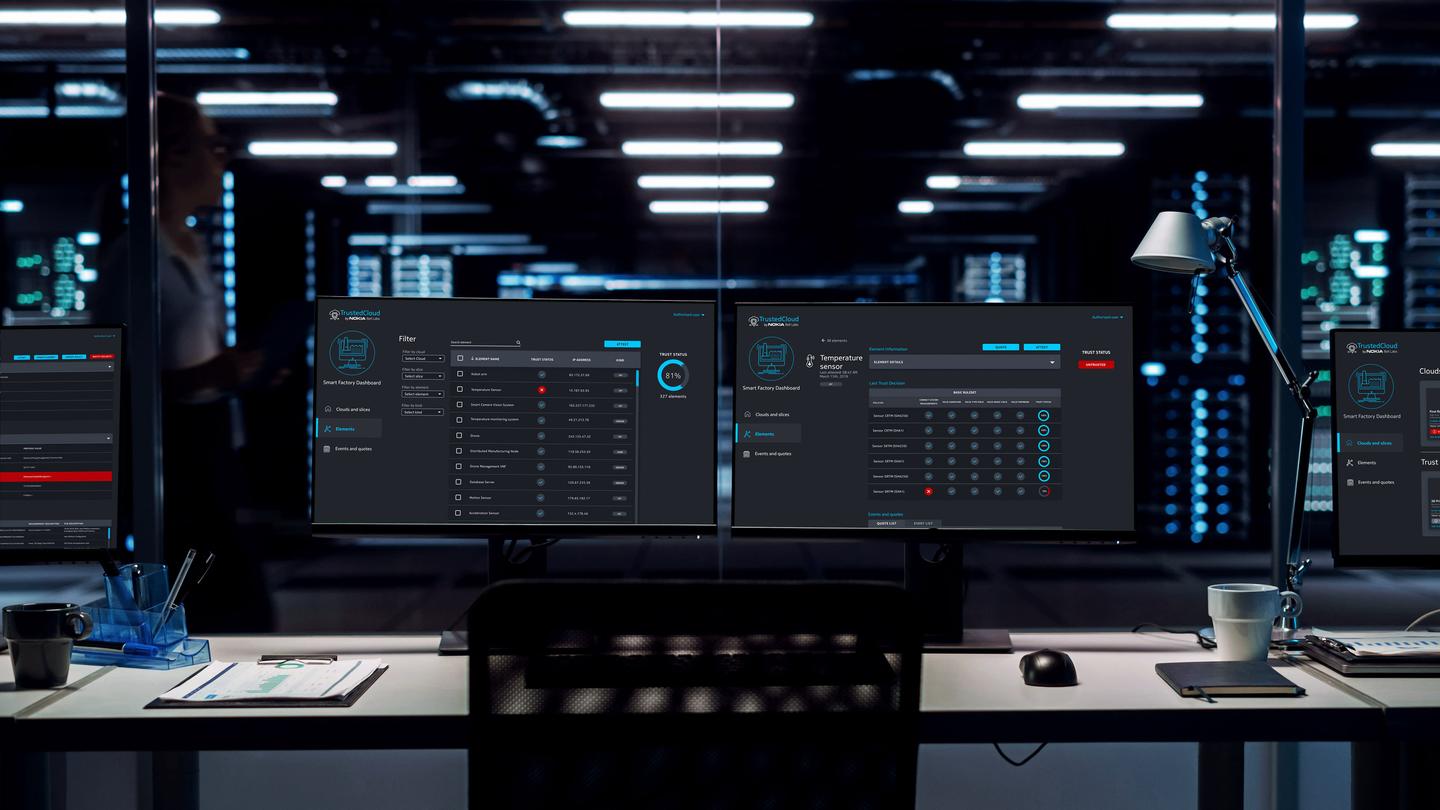DevOps engineer - what do they do and how to become one?
The tech world is expanding with many different job prospects to choose from. Among the jobs, you can specialize as a DevOps engineer. A recent survey shows that DevOps will still remain in high demand. This is a good indicator that the need for DevOps engineers is not likely to decline any time soon and due to the growth in this field, many developers are looking to shift their careers to a more DevOps-oriented direction.

A strong focus on DevOps in an organization or project can benefit in many ways, including:
Faster and more flexible releases with automated tools and focusing on agile development practices.
Better software quality and understanding by focusing on transparent release processes and real-time application monitoring.
A better understanding between the different aspects of the IT department and other IT functions, enabling them all to work better together.
But what exactly is a DevOps engineer? What do they do and how can you become one? These are the questions you ask when you're looking to start a career as a DevOps engineer. This blog will look at what it takes to become a DevOps engineer, the job specifications and key responsibilities. Furthermore, we'll take a look at some tools you need to befriend in your DevOps journey and tips on how you can fit into a broad development team.
What is DevOps?
In traditional software development, there was a clear divide between developers and operations. Developers know little or nothing about how the software they develop operates or how it's running. The operations knew nothing about how the software was created. DevOps was a concept designed to close this gap between software development and IT operations. The goal was to enable the faster and more frequent releases of software whilst maintaining high quality. DevOps practices achieve this by focusing on the software release cycle and how this can be optimized, by improving software development practices, tools, automation or eliminating time-wasting steps.
Where does CI/CD fit into this and why is it important?
Continuous Integration and Continuous Delivery/Deployment (CI/CD) is a core part of DevOps practices.
Continuous Integration (CI) is the concept of frequently taking developers software changes and combining them into a main version of the software that can then be automatically tested. Continuous Delivery (CD) is an extension of this that creates and tests potential releasable versions of the software with the incremental changes made by the development team. Continuous Deployment takes this one step further by completely automating the release cycle and automatically releases new versions that have been successfully tested.
The CI/CD process is often referred to as a pipeline, with incremental code changes from a developer fed in and production releases flowing out. A fully automated pipeline allows small changes to be delivered faster and more accurately to production. This brings transparency to the release of code changes and the increased velocity enables a feedback loop for developers.
Well implemented CI/CD allows organizations or projects to deliver software effectively, reliably and quickly. Software products can be shipped to the market faster with the continuous implementation of new features and fixes. With the rapidly changing technology landscape, DevOps and a CI/CD approach is critical for the success of IT businesses.
DevOps Engineer — What does it mean?
A DevOps engineer is a common word you’ll encounter in the tech industry and it is generally used to refer to any DevOps practitioner, whether they are a modern developer or more traditional engineer. They are the people who drive the adoption and evolution of DevOps practices within their organization or project.
A key aspect of a DevOps engineer is that they understand the full software development life cycle. They need to know how to utilize different tools to design, build and deploy CI/CD solutions as well as enable teams to monitor released software solutions.
A DevOps engineer will work with everybody in the software lifecycle, including software developers, system admins, IT operations and others, to streamline software delivery as well as ensure any feedback gathered is fed back into the software development process.
When do you need a DevOps Engineer and what do they do?
Though the role of a DevOps engineer is broad, here are some of the ways to identify the need for a DevOps engineer and the responsibilities that come with this role:
Optimizing release cycles
Are you experiencing a delay in delivering your product to the market due to your release cycles schedule? Then you should have a DevOps engineer on your team, as one of the core responsibilities for the role is to look for ways to optimize release cycles, eliminate hidden time-wasters and find new ways to make the process quicker.
Monitoring and Reporting
Do you lack visibility into how your application is performing in production? A DevOps engineer makes sure that there is transparency in the release pipeline and production monitoring solutions are in place. They provide insights on the performance of the software in production to reduce the time to detect errors (TTD) and time to minimize (TTM) them.
Automation
If you're experiencing a delay in getting your releases out there due to vital but repetitive tasks, then the DevOps engineer is your go-to person. They can assist software development teams in introducing new tools that automate their repetitive tasks or help them fit into the wider CI/CD pipeline.
Project management
Is it difficult to plan updates or feature roadmaps? As DevOps is not a purely technical concept a DevOps engineer also looks to improve the project management process from start to finish. They understand when, where, who, and how an IT project progresses. DevOps engineers help project management have the tools they need to have visibility into the release process and give developers the understanding of the objectives and the deadlines.
Designing and improving IT infrastructure
When your core IT infrastructure delays the software development process, a DevOps engineer is responsible for identifying ways to improve the infrastructure to ensure you and your teams can get software to the market faster.
Security
Whilst security is a responsibility of all levels of an organization, a DevOps engineer (or DevSecOps engineer) implements and oversees the best security practices to safeguard the entire software development lifecycle through security strategies, policies, processes and technology.
What are cloud devops services?
Cloud DevOps services combine DevOps practices with cloud computing, automating software development, testing, and deployment processes using cloud-based tools. Unlike traditional DevOps, which often involves managing physical servers and on-premises infrastructure, Cloud DevOps leverages features like scalability, automation, and Infrastructure as Code (IaC) offered by platforms such as AWS, Azure, and Google Cloud. Key services include continuous integration and delivery (CI/CD), cloud-based monitoring and logging, as well as security and cost management tools. These services enhance and accelerate software delivery, making it more efficient and reliable.
What skills do DevOps engineers need?
To become a DevOps engineer, firstly you should understand the DevOps culture and core practices. You are there to improve the software release cycle by identifying areas for improvement and knowing which DevOps practices can be applied to solve these problems.
So what skills should you focus on as an upcoming DevOps engineer? Let's break these down into various categories.
Software Development: As it is such a core part of the role it bears repeating. Understanding how software should be built and released enables you to improve and optimize the release process. It helps you identify those quick wins that can directly have a noticeable impact for the project or organization.
Core technical skills: You will need to possess the common knowledge required in all technical roles as a large part can be working with developers optimizing the release process. These skills include general code management, building and testing.
DevOps technical skills: You also need to familiarize yourself with how the tools and ideas at the core of DevOps fit together. You will need to be able to piece together the release pipeline and fit this into a continuous feedback loop.
Soft skills: In addition to technical skills, you will need to possess some soft skills (non-technical) as you will be working with many different people in the project or organization. You want to make sure you can communicate with developers, project managers and operations to have a full understanding of the project needs and release process.
You need to learn the core skills to have a successful career in DevOps. However, you don't need to be a genius in all core skills before you embark on the DevOps technical skills.
Do I need to know coding as a DevOps Engineer?
A DevOps engineer, you won't be working directly with the software code, however understanding the software development life cycle is important. Your main job as a DevOps engineer is to build the solutions that assist your IT and development teams in releasing software. But this is a technical role, and you might need to write some code to configure tools or automate vital tasks.
Finally, other skills that will carry you a long way as a DevOps engineer are:
An understanding of lean development and agile methodologies and what are the problems they solve.
Knowledge in system administration and cloud computing environments.
Experience of automation and software testing.
What tools does a DevOps Engineer need?
As for tools and technology, it's okay to feel overwhelmed in this rapidly changing landscape. Even as a professional DevOps engineer, you still can get choked by trying to keep up with the existing and new technologies.
But generally, a good understanding of some tools in the DevOps ecosystem will enable you to easily pick up new tools as the general concepts tend to be the same across many applications or services.
But to get started some popular technologies and tools are listed below, but keep in mind there are many other alternatives:
Source code management (SCM): This at the core of CI/CD and it allows you visibility and control into how your software is written. SCM provides a history of all changes made to the software code, enabling visibility into what changes are released and reverting them if needed. Git is by far the most widely used with platforms such as GitHub or GitLab.
Automation tools: Building on top of SCM, another core part of CI/CD is automating the release process to ensure fast, reliable and transparent delivery of releases. Automation tools come in many, many forms but some of the widely used modern CI/CD services are GitHub Actions, CircleCI or Azure DevOps.
Containerization Software: Modern software services are built as containerized applications, which involves packing an application with all its dependencies inside a lightweight, portable execution environment. As these containers carry all required dependencies, they can be run anywhere with a consistent environment. The widely used tools for this are Docker and Kubernetes.
Infrastructure-as-code (IaC) tools: These tools enable you to define your infrastructure (servers, networks etc) in a programming language that can then be managed in a SCM tool. This allows automated, transparent and repeatable changes to infrastructure. There are several tools for this depending on the platform used, but Terraform and Pulumi are widespread examples.
Cloud Computing Platforms: With the growth of cloud based solutions, understanding the core concepts of cloud infrastructure, cloud automation and the general services is important for a DevOps engineer. The common platforms are Amazon Web Services (AWS) or Microsoft Azure.
Monitoring software: Monitoring tools help track how the application is performing in production and can detect any issues to deploy quick fixes. There are several categories of services available and the list of available tools is huge. Some suggestions are Sentry or Raygun for frontend application monitoring and Papertrail or Splunk for backend log monitoring.
Project Management: Finally as a DevOps engineer, you aim to bridge the gap between many different teams or roles. This usually requires the use of project management solutions like Trello, Monday or Jira (amongst many others).
If you are interested in taking a jump into the expanding world of DevOps, some of the key positions you should watch out for include:
- DevOps or DevSecOps Engineer
- Quality Assurance Lead
- Release manager
- Software tester / Quality Assurance
- Automation expert
Interested in DevOps related jobs and vacancies? Check out our careers page and keep an eye what we’ll have to offer - we are constantly recruiting!
- About DevOps engineer in a nutshell
- What is a Devops engineer?
- A DevOps engineer is generally used to refer to any DevOps practitioner, whether they are a modern developer or more traditional engineer. DevOps engineers are the people who drive the adoption and evolution of DevOps practices within their organization or projects.
- What does a Devops engineer do?
- The main task of devops engineer is to improve the software release cycle. The role of a DevOps engineer is broad and responsibilities vary. Key DevOps engineer responsibilities include optimizing release cycles, monitoring and reporting of the software in production, software automation, project management, identifying ways of improving the IT infrastructure and overseeing security and software security best practices.
- What are the skills required for dev ops engineer?
- The fundamental pre-requisite of a devops engineer is to understand the DevOps culture and core practices. Devops engineers need to familiarize themselves with how the tools and ideas at the core of DevOps fit together. Software development core skills such as code management, building and testing are needed in addition to which soft skills such as project management are an asset as devops engineers work with many different people within the organization.
 Graham DawLead Developer
Graham DawLead Developer





